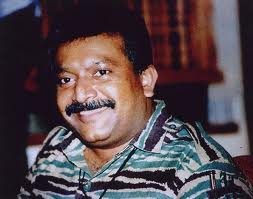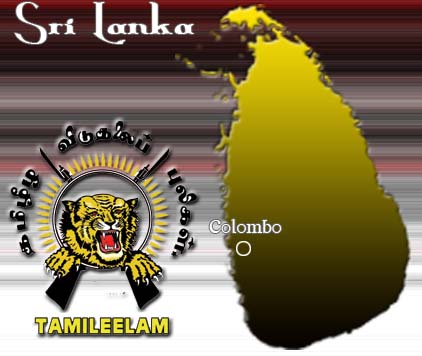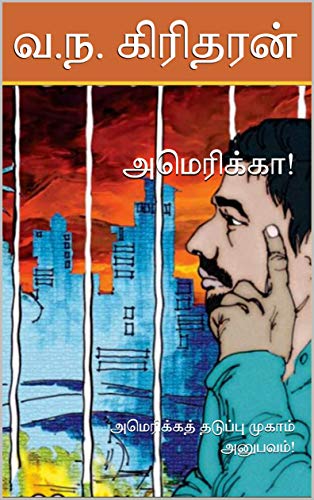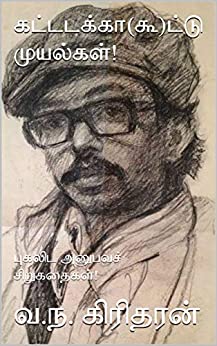
 'It is now crystal clear that the Sinhala leaders will never put forward a just resolution to the Tamil national question. Therefore, we are not prepared to place our trust in the impossible and walk along the same old futile path…. We therefore ask the international community and the countries of the world that respect justice to recognize our freedom struggle.” This is the key sections of the annual Heroes’ Day statement delivered by the slain leader of the disabled Liberation Tigers of Tamil Eelam (LTTE), V. Pirapaharan. Serious Sri Lanka watchers would agree that such a statement represents not only the Tamil disappointments and distrust, but also it effectively exposes the duplicity of five decades old southern Sinhalese politics, which categorically refused to do meaningful political business with the Tamil leaders who represent the North and East Tamils. Moderates The Tamil Tigers, who mirrored the Sinhala political establishment in its dealing with dissent and pluralism, unquestionably are the deadly elements of the Sri Lanka society. Whether the Tamil Tigers, for that matter, violent Tamil nationalists are freedom fighters as they claim themselves or deadly terrorists as the Sri Lanka governments describe, history will answer it. My point here is that the birth of Tamil Tiger movement had roots in Sri Lanka’s history and its anti-Tamil agendas. It is important to point that there was not an overnight decision among the ordinary Tamils to approve the agendas of the Tamil Tigers: the failure of Sri Lankan polity to meet the demands of the Tamil moderates was a key foundation for the origin of the Tamil extremism in Sri Lanka. Instead of listening to the Tamil leaders and accommodating their reasonable demands, the Sinhalese ruling leaders of the time assaulted and stoned the Tamils and their leaders, and even hired the Sinhalese to become butchers to kill innocent Tamils and moderate leaders. One needs to realize that successive governments since 1956 controlled by the Sinhalese miserably failed to engage the Tamil moderates such as the Federal Party (FP).
'It is now crystal clear that the Sinhala leaders will never put forward a just resolution to the Tamil national question. Therefore, we are not prepared to place our trust in the impossible and walk along the same old futile path…. We therefore ask the international community and the countries of the world that respect justice to recognize our freedom struggle.” This is the key sections of the annual Heroes’ Day statement delivered by the slain leader of the disabled Liberation Tigers of Tamil Eelam (LTTE), V. Pirapaharan. Serious Sri Lanka watchers would agree that such a statement represents not only the Tamil disappointments and distrust, but also it effectively exposes the duplicity of five decades old southern Sinhalese politics, which categorically refused to do meaningful political business with the Tamil leaders who represent the North and East Tamils. Moderates The Tamil Tigers, who mirrored the Sinhala political establishment in its dealing with dissent and pluralism, unquestionably are the deadly elements of the Sri Lanka society. Whether the Tamil Tigers, for that matter, violent Tamil nationalists are freedom fighters as they claim themselves or deadly terrorists as the Sri Lanka governments describe, history will answer it. My point here is that the birth of Tamil Tiger movement had roots in Sri Lanka’s history and its anti-Tamil agendas. It is important to point that there was not an overnight decision among the ordinary Tamils to approve the agendas of the Tamil Tigers: the failure of Sri Lankan polity to meet the demands of the Tamil moderates was a key foundation for the origin of the Tamil extremism in Sri Lanka. Instead of listening to the Tamil leaders and accommodating their reasonable demands, the Sinhalese ruling leaders of the time assaulted and stoned the Tamils and their leaders, and even hired the Sinhalese to become butchers to kill innocent Tamils and moderate leaders. One needs to realize that successive governments since 1956 controlled by the Sinhalese miserably failed to engage the Tamil moderates such as the Federal Party (FP).
The FP sought a comprehensive solution without jeopardizing the unity of Sri Lanka. However, Sinhalese collective, competitive chauvinism turned a blind eye to the Tamil moderates. Sadly, the choice of the Sinhala political class to use violence, effectively scratched the Tamil trust in the political system and encouraged some Tamils to adopt violence. Mr. Ranil Wickremasinghe, a former Premier of Sri Lanka during his visit to the United States echoed this truth. He pointed out that “the Tamils tried peaceful protests which soon degenerated into violence. With the underlying grievances being unattended the stage was set for terrorist groups to emerge (“Our Approach for a Better Tomorrow Free from Terrorism,” Daily News, July 25, 2002.) This helps us to understand the birth of Tamil violent movements, particularly the Tamil Tigers in the end of 1970. The Sinhalese ruling leaders, however, did not freeze their election-oriented ethnic outbidding policies. They incessantly formulated emotional policies to win the sympathy of the Sinhalese. A significant portion of Tamils in the North even after the end of the brutal war, think that they are being treated unfairly and their lands are being occupied by the Sinhala army. Colombo’s steady failure to engage Tamils and the Moors in the so-called post-war period to negotiate what political scientists call ‘consociational democracy’ to ease ethnic tensions explains Sinhala political class’ political goals.
What is more ironic is that in Sri Lanka, even after 30 years of conflict, after victimizing thousands of Sri Lankans, mostly Tamils, the Sinhalese political class is still refusing to recognize that minorities, including the Moors, whose political leaders actively support Sinhala political class, have legitimate grievances that require reasonable political solution. In fact, the Sinala political class is deliberately refusing to understand the problems of the Tamils and Moors; because they do not want to challenge the kind of political culture they created to outbid their opponents. To consolidate this narrow political culture, they utilize 5th century Mahavamsa, which plays a key role in the formation of Sinhala elite mobilization. According to Mahavamsa, Sinhalese people are the preservers of Buddhism and the entire island is the sacred home of the Sinhalese and of Buddhism.
Separation may not be a desirable solution for the Sri Lanka’s ethnic civil war which killed more than 100,000 people of the island’s 21 millions. In other words, separation may trigger further instability. But when a particular community is continuously being denied their rights and share, and become prisoners of the majority/dominant community, then there must be a solution to arrest unhealthy political situation and to give justice to the marginalized. However, desire for a partition could be challenged if the ruling elites show real willingness to think and act beyond the ethnic emotions, and commitments to share the powers with the minorities. That is to say, their must be effective power sharing mechanisms both at the center and the regions. This would more likely undermine the agendas of the Tamil nationalists, provided there is a domestic and international political willingness to implement the agreement.
Moreover, it is politically incorrect to demand a particular community to forcefully cohabit with the majority. Also, when there is no space for political accommodation and citizenship for the minorities who claim geographical domination in a certain areas of the country, separation is highly likely. Like Pirapakaran, there are many Tamils, who think that “uncompromising stance of Sinhala chauvinism” would never deliver justice to the Tamils.
Therefore, when the Tamils say “the uncompromising stance of Sinhala chauvinism has left us with no other option but an independent state for the people of Tamil Eelam,” it is highly demonstrating their frustration both with the impartial delivery of democratic system and the Sinhalese ruling elites.
The best alternative to the partition is, as above mentioned, serious political formulas which would go beyond the failed unitary state structure. Such a political formulas may probably provide a political space to cohabit with other groups, while maintaining their own identity and values. The basic logic of unity is acceptance. When we prepare to accept choices made by others regardless of their ethnic/religious identity, we not only win their trust, but also their loyalty to the common goals. On the other hand, polity may trigger violence and instability when we shove our preferences on others. Unity and peace among the different groups, by and large, occur when there is a sprit for respect, self-determination, and freedom, in other words, tensions between the different ethnic groups can disappear when the state offers the space for the minorities to build their lost trust, and to uphold their citizenship through the political autonomy.
Sinhala political class needs to engage Tamil leaders as well as Moors to seek justice. Absence of justice often triggers tensions and rivalry. A political solution to the conflict is one way to gain justice. Ethnic leaders can emerge in absence of justice, decent peace and opportunities. Colombo should not forget the roots of the conflict that gave birth to the LTTE. Elections are part of healthy democracy, but what dignifies democracy is culture of pluralism and justice in which masses would enjoy true political, social and cultural autonomy.
(Dr. A. R. M. Imtiyaz’ research and teaching are mainly focused on ethnic politics. He has published widely in peer-reviewed international journals. He currently teaches at the Asian Studies/Department of Political Science, Temple University, Philadelphia, USA.)
Courtesy: http://www.thesundayleader.lk/2012/07/22/sri-lanka-ethnic-conflict-ltte-and-future/




